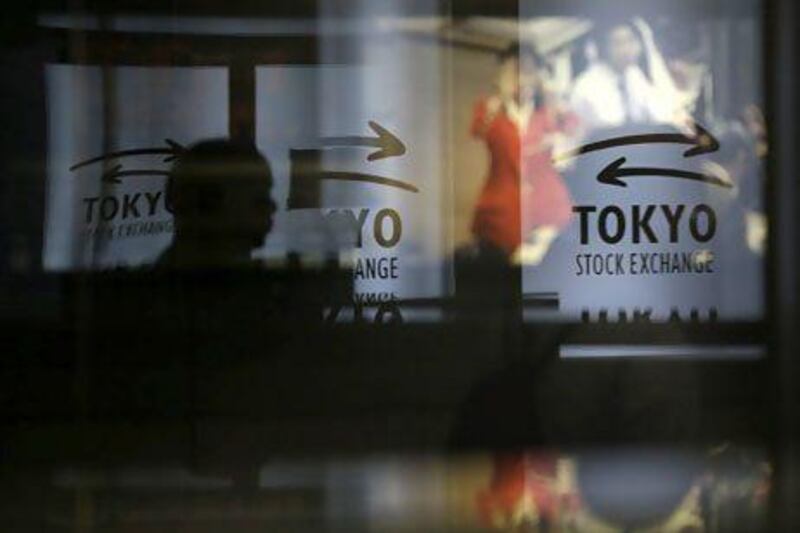World stocks endured a tough trading session yesterday, led by sharp falls in Japanese equities, as a sell-off on global financial markets accelerated.
The Nikkei Stock Average tumbled 6.4 per cent, its sixth loss in the last seven sessions, as it entered a bear market, 20 per cent below its recent peak in May.
Cited repeatedly as the cause for this week's heavy declines is uncertainty about how central banks will ease out of the markets that they helped to prop up during the worst of the economic crisis.
"The easy money helped us on the way up. The concern is mounting it's going to end," said Andre Bakhos, the director of market analytics at Lek Securities in New York. "The action has been choppy and erratic. It's a case of investors looking to limit exposure ahead of next week's Fed meeting."
Japan's economy minister called for a calm response to the sharp slide in Tokyo share prices, characterising yesterday's stock market fall as caused mainly by developments overseas, not in Japan. Share prices and other market indicators are "swayed significantly by overseas factors," the economy minister Akira Amari said. "We watch their movements carefully, but there's no need to worry about every single movement of the market."
With the government's economic growth strategies now in place, Mr Amari said "the important thing is to work on real economic challenges.
If the real economy improves, the stock market will follow". He added "almost all economic indicators" were pointing upwards.
However, a Bank of Japan policy member warned yesterday that market falls warranted close monitoring. Sayuri Shirai also revealed her own estimates for future price growth that were considerably less optimistic than the official median forecasts released by the bank in April, and expressed concern that sales tax increases could drag on the economy.
Ms Shirai made the comments in Hokkaido, northern Tokyo, as Japanese shares headed into a bear market and the yen broadly strengthened, triggered by growing concerns that the Federal Reserve will scale back on its massive bond buying programme.
"I'm keeping a close eye on rising volatility in the stock market and the currency market," Ms Shirai said at a press conference following her meeting with business leaders.
The reversal of the yen's depreciation and declines in share prices are worrisome developments as they may weaken corporate and consumer sentiment toward spending.
Ms Shirai, a former economist at the IMF, said the recent peak in share prices in May was "not too high" from a historical perspective, while the yen's sudden climb reflected mixed views among investors over how and when the Fed would exit from its easing policy. "If the US economy recovers, US interest rates, the dollar and share prices ought to rise," she said.
But recent economic data in the United States have offered mixed signs, while uncertainty over the Fed's future policy stance have caused diverse and volatile reactions in markets, she said.
Meanwhile, Indonesia became the first central bank in Asia to raise its policy interest rate since 2011, the strongest sign yet in regional emerging economies of the stress being wrought by the global markets rout.
The Indonesian central bank's move was unexpected but followed a flurry of measures this week, including a pledge to supply dollars and buy government bonds, to defend the rupiah currency after it stumbled to a four-year low beyond 10,000 per dollar.
"I think they want to send a clear message to markets that they will act on rupiah weakness," said Sean Yokota, the head of Asia strategy at the Scandinavian Bank SEB in Singapore.
* with agencies





